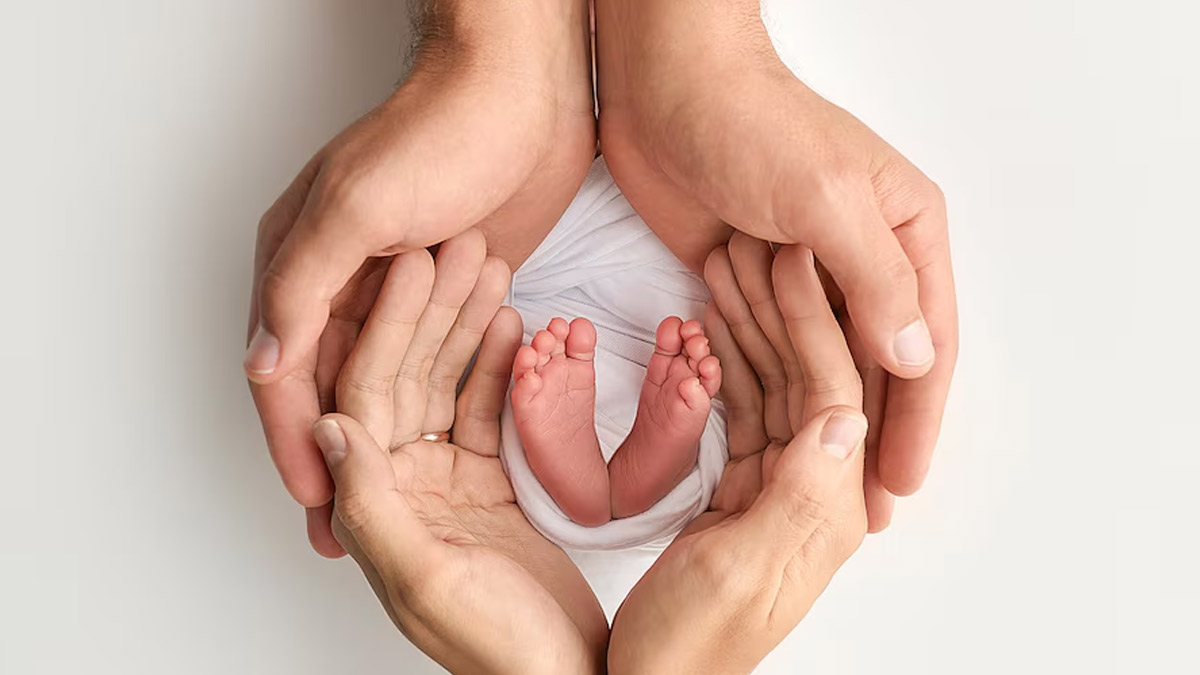
World IVF Day, popularly known as World Embryologist Day, is observed globally on July 25th each year. This day acknowledges the contributions and progress made by embryologists in infertility and reproductive medicine and highlights the various fertility treatments available for those who cannot conceive naturally.
Table of Content:-
Infertility has remained a global issue. In fact, around 17.5% of the adult population, which is roughly one in six worldwide, experience infertility, according to the World Health Organization (WHO), highlighting the urgency to increase access to affordable, high-quality fertility care for those in need. In vitro fertilisation (IVF) is one such effective treatment procedure, in which an egg is fertilised by sperm in a test tube or somewhere outside the body.
On this special event of World IVF Day 2024, we at OnlyMyHealth interacted with Dr Mahesh Koregol, Fertility Specialist, Nova IVF Fertility, Koramangala, Bengaluru, who shared answers to the most common questions around IVF asked by his patients.
Also Read: World IVF Day 2024: When to Opt for IVF and What to Expect, Doctor Answers
How Does An IVF Work?

IVF involves a combination of medicines and procedures that help sperm fertilise an egg, which is then implanted in the uterus.
“During IVF, a woman's ovaries are stimulated to create several eggs, which are then removed, fertilised with sperm in a lab, and the resultant embryos are transferred into the uterus,” said Dr Koregol, adding that it overcomes a lot of reproductive issues and can help couples who are having trouble becoming pregnant naturally.
Is IVF Painful?
If you're someone who wonders whether or not IVF is a painful procedure, then you are not alone.
According to Dr Koregol, the process of egg retrieval is conducted under general anaesthesia, so it is not painful. But because of the hormone injections, egg retrieval, and embryo transfer involved in IVF, it can be considerably uncomfortable.
However, this can vary from person to person, the doctor said, sharing that the majority only have mild to moderate discomfort, which is manageable with medicine and specialised care from the fertility specialist.
Is IVF Affordable?

“The cost of IVF varies depending on the patient. Numerous factors influence fertility and treatment expenses, including age, the quality of sperm and eggs, lifestyle choices, and underlying medical conditions. As a result, each person's IVF treatment costs may vary considerably. The estimated cost is dependent on individual circumstances,” said Dr Koregal.
Am I Eligible For An IVF Treatment?
The WHO defines infertility as failure to achieve a pregnancy after 12 months or more of regular, unprotected sexual intercourse.
Therefore, if a couple has been actively trying to conceive without success for more than a year, considering seeing a fertility specialist may be the right way to approach it, according to Dr Koregol.
“After six months of trying, it's advised for women over 35 to get support. Furthermore, those who have a history of irregular menstrual cycles, are aware of reproductive issues, or have had previous medical illnesses that have affected their fertility should consult a fertility specialist as soon as possible,” he adds.
As far as IVF is concerned, anyone over the age of 23 can consider the treatment depending on the reason for infertility, ovarian reserve (egg numbers), sperm concentration, etc., shared Dr Koregol.
Also Read: IVF Success Rates Drop 38% Due To Air Pollution, Study Reveals: Expert Explains How This Happens
What Is The Success Rate Of An IVF?

The success rate for IVF may differ from person to person.
Many factors, including the couple's age, the quality of their sperm and eggs, and any underlying reproductive issues, affect the success rate.
Women under 35 typically have a 40–45% probability each cycle, and as they get older, their chances of success decrease.
Am I At Risk Of A Failed IVF Treatment
Dr Koregal responded, “The likelihood of an unsuccessful IVF treatment is influenced by a number of variables, such as embryo quality, age, and underlying medical disorders. Although there's always a chance of failure, an infertility specialist assesses your unique situation and offers suggestions for increasing the likelihood of success.”
Can I Have A Normal Birth After IVF?

The short answer is yes; it is absolutely possible to have a normal birth after an IVF treatment.
The method of conception doesn't dictate the mode of delivery.
"Many women who conceive via IVF go on to have healthy pregnancies and deliver naturally. The method of delivery should be examined with a medical professional as it varies depending on the specific circumstances," the doctor highlighted.
Also watch this video
Read Next
IVF Success Rates Drop 38% Due To Air Pollution, Study Reveals: Expert Explains How This Happens
How we keep this article up to date:
We work with experts and keep a close eye on the latest in health and wellness. Whenever there is a new research or helpful information, we update our articles with accurate and useful advice.
Current Version
